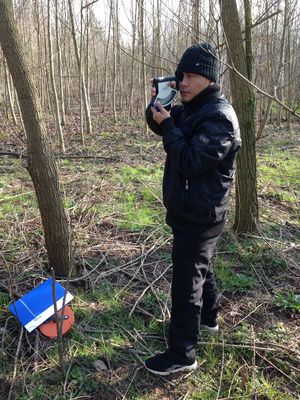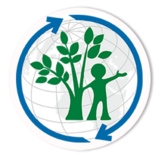- Akos Ivanyi, Ungarn
- Starford Mvula, Zambia
- Behruz Ilnazarov, Tadjikistan
- Lela Kakhniashvili, Georgia
- Carla Ocano, Uruguay
- Alfredo Rodriguez Zunino, Peru
- Rina Kristanti und Yayuk Siswiyanti, Indonesien
- Tibor Kadar, Rumänien
- Noor Hussein, Kenia
- Joaquin Garrido, Uruguay
- Lee Xiong, Laos
- Nehemia Gurusinga, Indonesien
- Edi Kurniadi und Kusdamayanti, Indonesien
- Myroslav Kabal, Ukraine
- Ekatherina Nevmerzhitskaya und Nikolay Nevmerzhitsky, Russland
- Le Xuan Toan, Vietnam
- Li Ming, China
- Ekaterine Balarjishvili, Georgien
- Gamin Gesa und Yopie Parisi, Indonesien
Carbon Forestry Course in Freiburg and a study tour to Baden-Württemberg

by Lee Xiong, Laos
The German Forest Society is the responsible organization of the “Forest Expert Program“ which aims at increasing the professional exchange of forest management, related experiences among forest experts, and thus building capacity and transferring knowledge in the field of sustainable forest management to other trainees from different countries and regions. The program is funded by the German Federal Ministry of Food and Agriculture (BMEL). In 2018, the Forest Expert Program organized a full month training program, which consisted of a three weeks Carbon Forestry Course, and another week with visits to forestry offices and field practices. The course has been organized by the Faculty of Environment and Natural Resources, at the University of Freiburg. In total there were 29 trainees, of which eleven are international master students from the University of Freiburg, and the remaining 18 came from different countries and continents.
I was the only trainee from Laos PDR. I am working for a GIZ project called ‘Climate Protection through Avoided Deforestation’ funded by German Federal Ministry of Economic Development and Cooperation (BMZ). The CliPAD project supports the national REDD+ program which institutional arrangement, capacity building, the Emission Reductions Program Document (ER-PD), National REDD+ Strategy Development, Provincial REDD+ Action Plans (PRAPs), Development of a Safeguards Information System (SIS) and a Benefit Sharing Mechanism (BSM). At local level, the project is also working on Village Forest Management, Village Development Fund, and livelihood improvement activities, among others.
The Carbon Forestry Course has deepened my technical knowledge on international Climate Change policies to address the impacts, some mitigation activities/measures taken that are related AFOLU sector such as CDM (A/R), REDD+, Improved Forest Management (IFM), Forest Landscape Restoration (FLR) and others. Successfully, after the completion of this course, the trainees have been able to assess different projects based on land use including a VCS based Chyulu Hills REDD+ project located in Kenia as a case study.
In addition, after the Carbon Forestry Course, we had the opportunity to visit different forestry offices and visited some field areas. The field trips allowed us to better understand how sustainable forest and biodiversity management in Baden Wurttemberg functions. We had the chance to learn about forest planning and monitoring, forest restoration, forest inventory, logging process, forestry information system, biodiversity protection, ecotourism and recreation to transfer these to the conditions in our home countries. The visits to the Forest Education Center in Karlsruhe and House of Forests in Stuttgart were important for me to learn about and appreciate the technical capacity building of the government and private forest professionals. We got insights on how knowledge transfer could be arranged in cases of special training courses for community forest workers as well as providing excellent forestry and environmental awareness raising to all people with special focus on kindergarten pupils. All these are relevant lessons for the project I am working for as well as for any future forestry related projects in Laos PDR since capacity building is one of our main aims as technical advisors.
Lee Xiong

